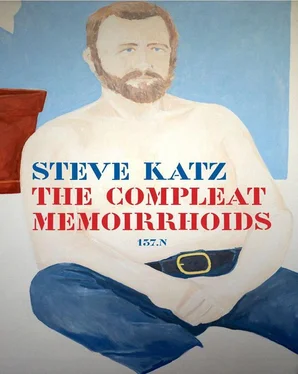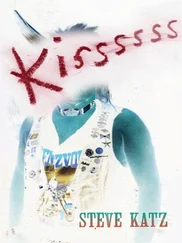It’s like an image on a shroud, that vision of her face I still maintain beseeching me through the streaked subway window, and I feel if only I’d got out then, and followed her to the street, to where? To Grant’s maybe for a nineteen cent hamburger? To Nathan’s, an all beef hot-dog to eat together? If only I’d exited with her instead of heading for the chic galleries on 57th. If only I’d followed this Botticelli gift, everything today would be different.
This wasn’t like going from Iraklion to Knossos. There you rode in a tourist bus packed with other Yanks, Brits, Krauts, Japs, Arabs, Eastern Europeans, all ready with their cameras to explore the palace of the Minoan king and to speculate about the sweetness and civility of that civilization. In the frescoes their bullfighters are acrobats that somersault between the horns, no mutilation of the bulls. Even the red on the walls and frescoes have a gentle ochre softness. It might have been a kinder, gentler polis.
But there was no tourist bus to Loutro, no big tourist attraction there, no archaeological treasure. You got from Sougia to Loutro either on foot over the mountains, or you took the mail boat. The idea of the town seemed relaxing as it was undisturbed, away from the din of internal combustion engines. I had no backpack, only a suitcase I wasn’t anxious to lug over the trail, so I took the boat, a small open steamer loaded with supplies for Loutro. During the forty-five minute trip I chatted with three handsome young German women, all of them medical students, bright, perfect English. They’d heard that Loutro was isolated and beautiful. They were going to meet up with their teacher from medical school, who was coming from the other direction. She was their exalted leader, like their guru, and they invited me to have dinner with them that evening, so I might meet her.
Loutro is on the shore of a shallow bay, with a slight grin of a beach, the few buildings pushed up almost flush against the cliffs. At one end of the beach were a couple of small hotels, two restaurants, a few rooms to let. Nothing was available for me there, all the rooms filled with Germans, it seemed. On the other end of the beach, across a length of sea wall, there was a small cafe and a few rooms for rent. I lucked in to one of those. Curiously, none of the people drawn to this side of the divide were German — a gay American couple, a Norwegian woman, a Frenchman. How strange the feeling that came over me that it was us against them.
After sharing an ouzo at our cafe with all my neighbors, I crossed the divide to have dinner with the medical students and their guru. I particularly enjoyed one of the women. She was gentle and intelligent. I liked looking at her green eyes, ivory skin, dark hair. Though she didn’t really look like her, she reminded me of a young Liz Taylor. When their teacher arrived at the table, they all stood up, as I did too. She was a tall, slim woman in her forties, who made a very brown impression — hair brown, eyes brown, brown sweater, brown skirt, brown shoes. She nodded when her students introduced me, and gestured for everyone to be seated.
At first the conversation was mostly in German. I gathered it was about other students, faculty, what classes to take, what internship would be like. Dinner was the ubiquitous Greek salad, and a baked pastitsio. The retsina was good, dry and piqued with anise. I didn’t mind being left out, enjoyed watching my Liz Taylor approximate. I don’t know how the conversation got around to Jews, but it did, and in English as if for my benefit, as we ate a gummy galataboureko, and sipped sweet coffee. One of the women had brought up new technology at the hospital, how it was clever, and innovative.
“The Germans,” the guru said to me, “have always been clever and efficient people. It is our gift. Clean, efficient.” I felt as if I was being drawn into the fold of her acolytes. “Even in the war, though it was wrong what the Nazis did to the Jews. I would always say so, but the Jews have always been a problem, yes. In Europe, everywhere. And the Nazis developed a solution to that problem. It was cruel, but it was organized, efficient, and elegant. And it was convenient. You say convenient? It worked cleanly.” I don’t know if she had guessed that I was Jewish, and she was being vindictive, or if this was just a common conversational note for her. My tongue was paralyzed. I wanted to fly across the table and wring the neck of this sick doctor guru mad med school teacher monster bitch, but that would have been impolite in front of her students, and it wouldn’t have cured the disease. I got up from the table and walked away without a word, and hated myself for my silence.
Back on “our” side of the village I sat down at a table of “my” people and listened silently to the usual vapid tourist conversation — places to find bargains, prices of rooms where they’d been, great meals in Marseilles. After a while it was the Norwegian woman and myself sitting alone together. She was a big woman with a sad but pleasant face. Of course I noticed her ample breasts under her soft, fuzzy sweater. She mentioned that she was a lawyer and with eyes starting to tear, said that she had come to Crete to be alone and reassess a difficult relationship. I could feel that she needed to talk, and also that she was uneasy about sharing her personal life with a stranger. “Difficult relationship” was perhaps all she wanted to say about it. We had rooms in the same house, and walked there together. The moon was almost full and its silver light diffused through the Mediterranean haze and reflected off the wavelets that a warm breeze agitated. We paused to lean against the sea wall, and our bodies pressed against each other. She held my hands for a few moments, then pulled them to her breasts that wobbled under the softness of sweater, no bra. After a short wait I tried to pull my hands away, thinking it might have been a miscalculation, a brief indulgence, but she held them, then urged them up under the sweater. These were the most perfect breasts, so ample and shapely and warm, the nipples erect, evoking tiny sighs when I gently pinched them to punctuate our conversation about the moon. What a great gift, a reassurance, just what I needed, an antidote to the German witch.
Early the next morning I sat down at the cafe to have some coffee and toast, and scribble in my journal. I was approached by the Frenchman, who was also traveling alone. He had a portfolio under his arm.
“I notice in the morning you come here to write. You are a writer, yes?”
I nod.
“I am an artist. I am a sculptor.”
“Good,” I said, and put my pencil to my journal, to hint that I would like to continue writing. No luck. He placed his open portfolio over my notebook. “Would you like to see?” He had given me no choice. There they were in front of me, his bronzes, competent but terrifyingly sweet, idealized pubescent nudes, dancing to please. One ideal Rhine maiden offered up a tray of fruit. To whom? To the Fuhrer? I had to remind myself that he was not German.
“I can’t go back to Paris,” he said. “I can’t live there any more. Everything has changed. I don’t know what is there any more. Filth. It is all filthy Arabs, and what else? Russians, Polish, Jews, Africans. France is finished.” He paused for my response. When he got none, he went on. “You take these with you,” he said, as he handed me some publicity cards with photos of his bronzes. “Take them to New York and show them to galleries. If something comes of it, you will be well compensated. Trust me.” He laid the cards on my journal, folded his portfolio, patted my shoulder, and left.
This trip had dropped me into a nest packed with the intellectual trash of Europe, these creeps from the right wing underbelly. In contrast with US skinheads and Nazis these people seemed intelligent, artistic, in humane professions. I had the total nausea. This planet suddenly seemed inhospitable. I looked up at the cliff behind the cafe. A steep switchback trail ascended for more than a mile. I laid my journal down on the bed in my room and exchanged my sandals for sturdier shoes. At every turn of the trail I looked down at the sea, agitated by a stiff wind, but still exchanging azure with the sky. Gulls rose and fell around me. I knew they eyed me only as potential carrion. I climbed more. An arrow of small clouds pointed North. My heart banged at my chest. I wasn’t in great shape. This could be the place, a good day to die. At the top finally I sat down relieved and looked into the distance at the gathering storm. Here was a small village, one tiny store, a few houses, on a dusty road. “Yassou.” Never had I welcomed so much the feel of a bottle of Coca Cola. I walked back to the edge to think about returning to Loutro. A small, lean, swarthy man in a tattered blue sweater and beret approached. “Yassou,” he greeted with a big smile. “Yassou,” I responded. He touched my elbow and pointed out to sea. “Schon” he said. I didn’t reply. He paused and swung his arm to sweep everything into view. “Beau — tee — fool.” “Yes. Beautiful. Yes,” I agreed.
Читать дальше












